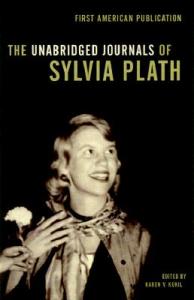Many fiction fans get to the final page of a brilliantly immersive novel and immediately experience the crushing, numbing paralysis known as a “Book Hangover.” Dazed and disoriented, convinced that “nothing else will ever be that good,” you scour online lists for read-a-likes for hours before deciding that no title could ever replicate the soaring highs and crushing lows of The Secret History or Me Before You. Days go by, but the bleak pit of despair remains lodged within. Maybe you stumble upon some fanfiction to feed your withdrawal, meanwhile the laundry is neglected and the cat’s food dish stays empty…
Perhaps the answer lies not in another novel but in another part of the bookstore entirely. Consuming novel after novel for years at a time can plant a seed of mistrust about fiction’s twin sister, nonfiction. Fiction’s promise of escapism is an addictive and undeniable hook, yet what if I told you there’s plenty of non-fiction that replicates the same feels you get from your five-star-rated novels and short stories?

One thing that appeals to some fiction fans is lyrical prose and poetic language. Essayist Joan Didion is a master at manipulating true events into a soaring narrative. Pick up her earliest essay collection, Slouching Towards Bethlehem, or her phenomenal National Book Award winning memoir The Year of Magical Thinking and you’ll find yourself in the hands of a master prose stylist.

David Finkel’s harrowing chronicle of the Iraq War, The Good Soldiers, and the follow up, Thank You for Your Service, do not shy away from a truth you wish was fiction. What makes Finkel’s books chilling yet engrossing is his constant rhetorical questions to which there are no easy answers. Finkel is able to take a timeline of events and break them down into smaller moments that speak to the bigger picture much in the matter of a great collection of short stories.

Nonfiction is often noted for its thriller-like documentation of intense events. Stories of survival and pursuit are perfect for fans who favor fast-moving action and a driving plot. Hampton Sides’ In the Kingdom of Ice: The Great and Terrible Polar Voyage of the USS Jeannette details the crew of the USS Jeannette’s trek across ice a thousand miles north of Siberia. The crew of the ship featured in Nathaniel Philbrick’s In the Heart of the Sea: The Tragedy of the Whaleship Essex faced a similar scramble for survival when their ship was destroyed by an eighty foot whale (yes, this was an inspiration for Moby Dick). With the odds stacked against them in nearly every way imaginable, the crew tries to fight their way back home to Nantucket alive.

Sometimes you crave the voyeuristic intensity of first person narration in a way only a diary can satisfy. For that try The Unabridged Journals of Sylvia Plath,which documents the poet’s life from college through her final months. Plath was unsparing in her assessment of the people in her life and uncensored in her ultimately life-ending battle with depression. Berlin’s occupation by Russian forces in 1945 was brilliantly chronicled by Marta Hillers and collected in her diary published as A Woman in Berlin: Eight Weeks in the Conquered City.Undeniably grim, Hillers’ diary is shocking as she records observations of the challenges Berlin women faced.

Jennifer Egan’s short story/novel A Visit from the Goon Squad captured the music industry’s frantic energy, a landscape of success and failure as each chapter’s protagonist made the decision between accepting misery or embracing opportunity. Please Kill Me: The Uncensored Oral History of Punk, compiled by Legs McNeil and Gillian McCain, unites all the big names in punk history, from Iggy Pop to Jim Carroll. The collective recollection of pop’s emergence from counterculture to mainstream is a group bildungsroman, and the interconnectedness of the story is right in line with Egan’s characters.

Joseph Mitchell’s Up in the Old Hotel is a treat for fiction readers who like stories about eccentric characters and urban life. Mitchell was a writer at the New Yorker whose writing focused on interviewing and profiling some of New York City’s quirkiest personalities. Mitchell’s ability to transport you to another time and place so fully will leave you feeling like you’ve just left the Manhattan of a lost era. Fans of Michael Chabon and Dorothy Parker will be pleased.

Sometimes with fiction, you just want description so vivid it feels like it’s happening to you to fully answer your need for escapism. A cure for that is the culinary memoir, such as Tender at the Bone: Growing Up at the Table by Ruth Reichl. Reichl is a legend in the food world, and her memoir is packed with juicy descriptions of the food that shaped her life and career. The Art of Eating by food critic M.F.K. Fisher is a classic in the food writing genre as Fisher uses food as a launching point for her coming of age. Julia Child’s My Life in Francepairs food descriptions with insight into Parisian life and the bitter struggle to publish her cookbook. Reading any of these memoirs will leave you eager to get in the kitchen.
Elements of fiction are present in the best of nonfiction. A diverse category of books, nonfiction is a sure remedy for when you can’t find a proper fiction answer to your novel book hangover.